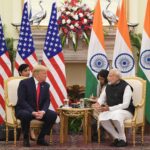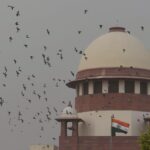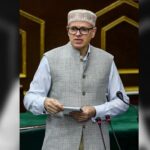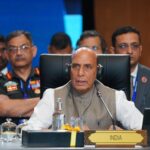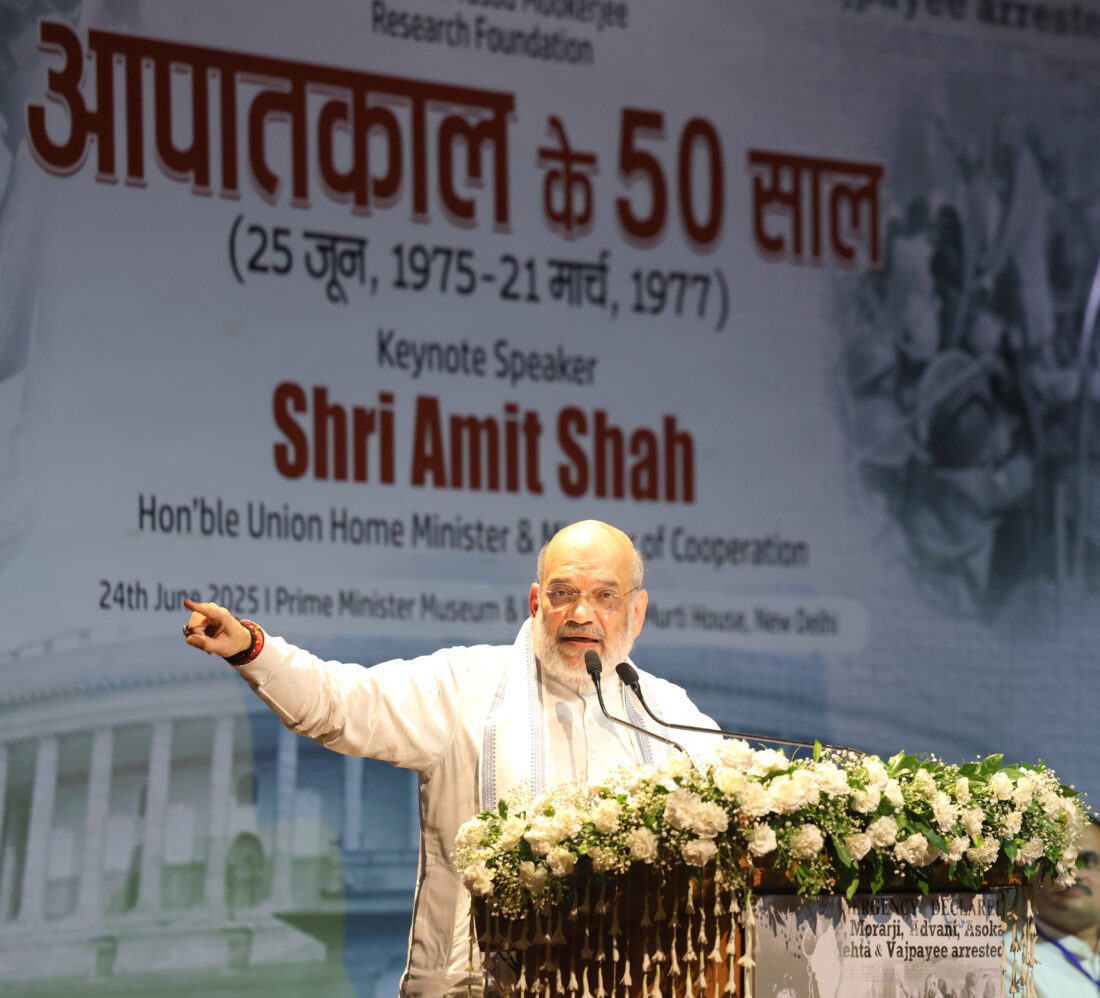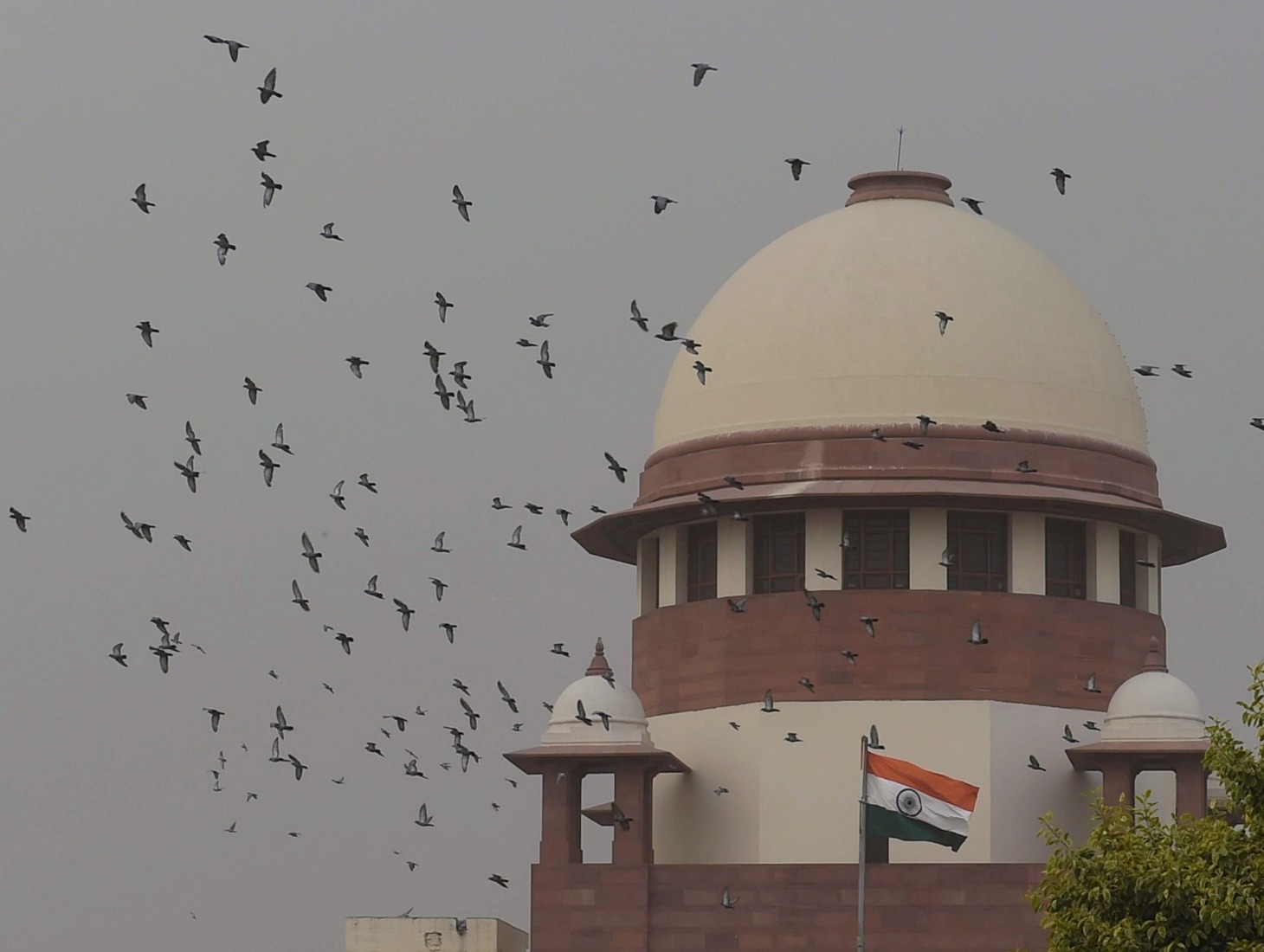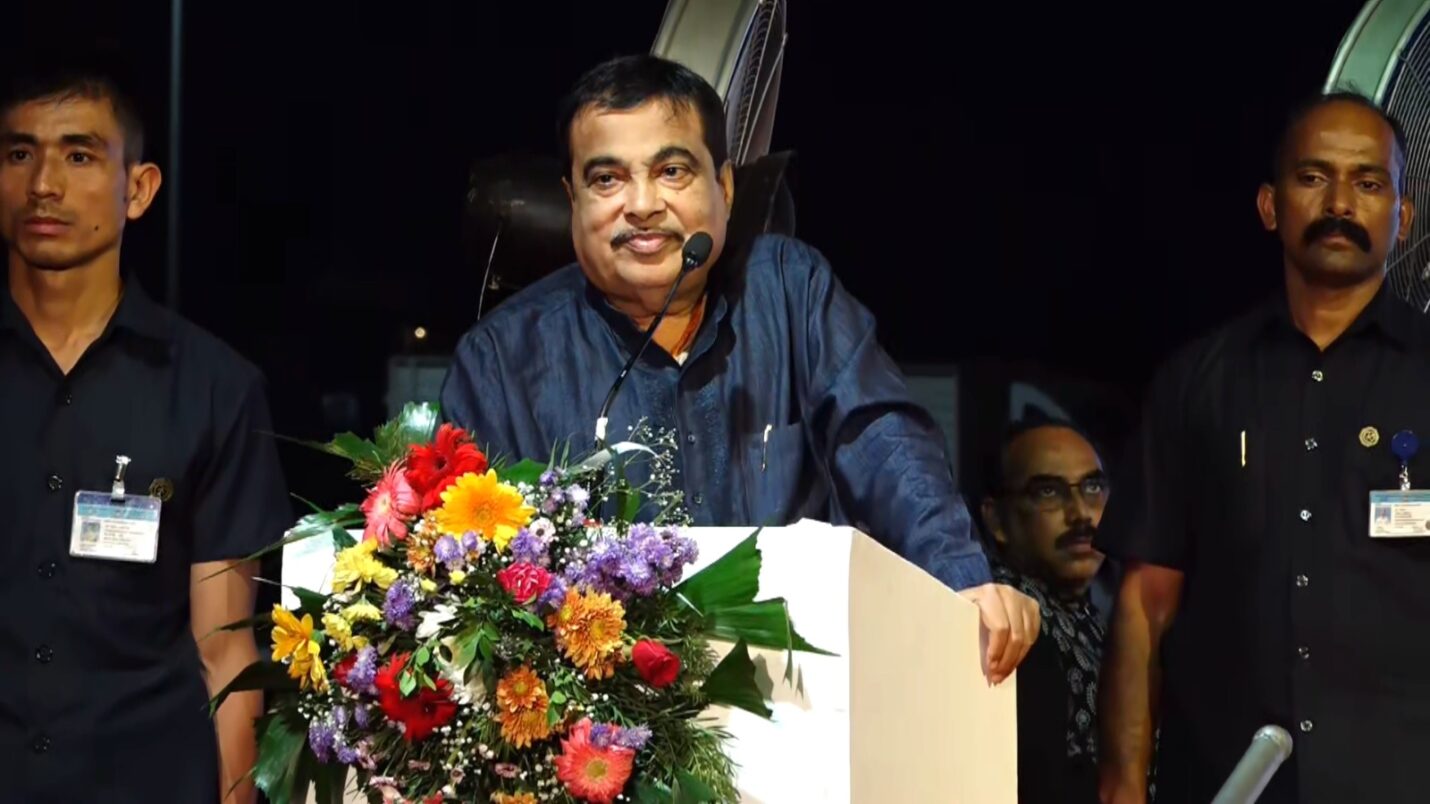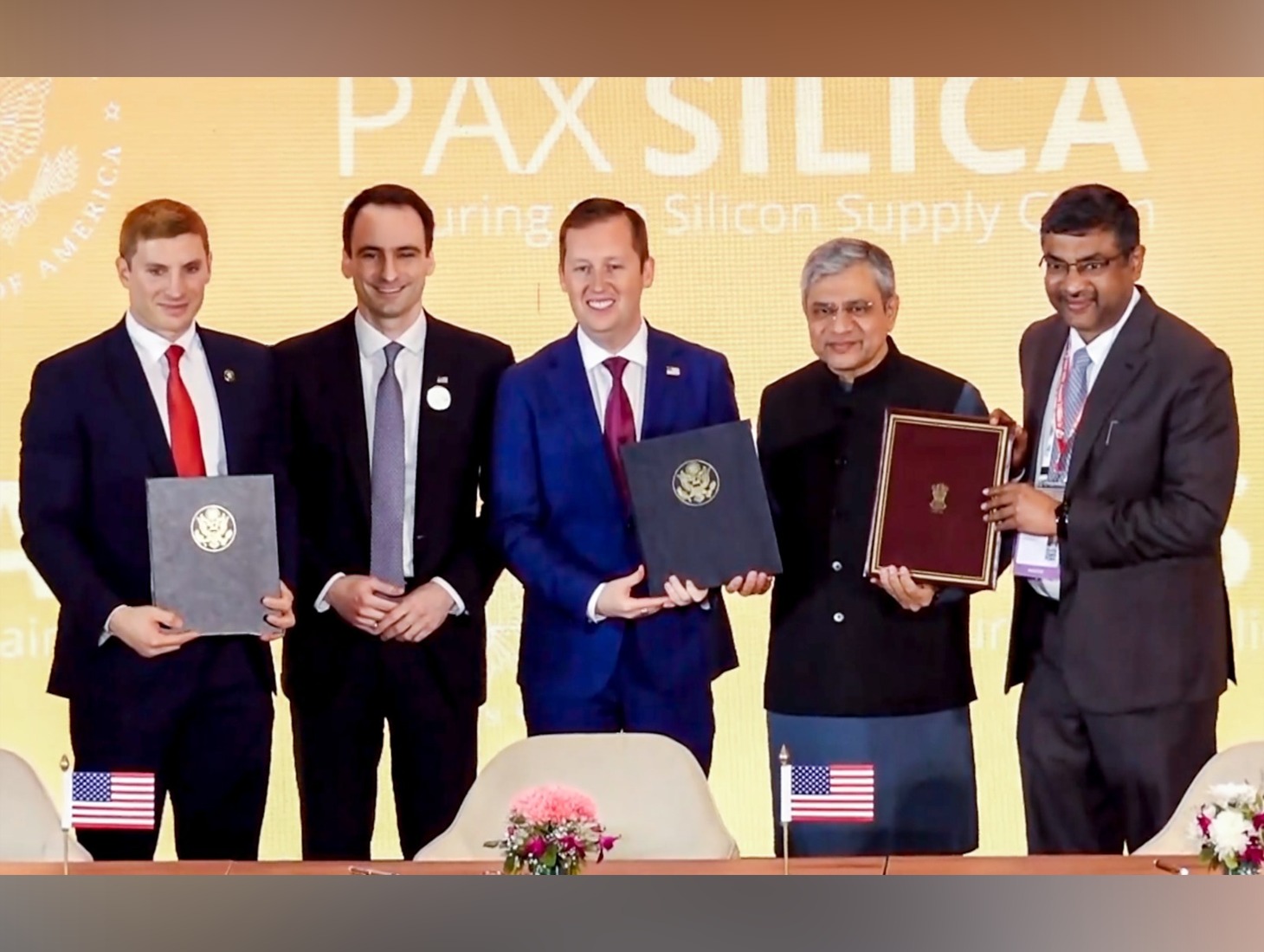The North News
New Delhi, June 25
Union Home Minister Amit Shah on Wednesday marked the 50th anniversary of the Emergency by declaring that India “will never accept dictatorship,” as he launched The Emergency Diaries, a book chronicling Prime Minister Narendra Modi’s underground activism during the 1975–77 period. Speaking at the launch, Shah described the Emergency as a time when democratic rights were trampled, the press was gagged, and opposition voices silenced through mass arrests. He said remembering those 19 months was crucial to protecting future generations from the dangers of authoritarian rule.
“This book is not just a chronicle of events but a testimony to the resilience of our democracy,” Shah said. The Emergency Diaries: The Year That Forged Our Leaders focuses on Modi’s role as a young activist who operated underground, distributing banned literature, organising resistance, and offering support to those detained under the Maintenance of Internal Security Act (MISA).
“PM Modi, then just 24 or 25 years old, led the struggle on the ground—sometimes disguised as a sadhu, a Sardar, even a hippie,” Shah said. “He arranged medical treatment for MISA detainees, and circulated secret newspapers among students, traders, and women.” In a sharply political tone, Shah said it was “divine justice” that the same young man who resisted Indira Gandhi’s Emergency would go on to defeat what he called the root cause of it: dynasty politics. “That youth is today reinforcing the democratic foundations of India,” he said.
Referring to the Emergency as Samvidhan Hatya Divas—the day the Constitution was ‘murdered’—Shah quoted the sudden declaration that “the President has proclaimed Emergency,” noting how it instantly nullified the spirit of the Constitution crafted through years of deliberation.
He also paid tribute to Dr B.R. Ambedkar and other framers of the Constitution, stressing how their painstaking work, consisting of nearly 267,000 words, was disregarded with a single authoritarian decision. Shah’s remarks, heavy with references to Modi’s legacy and the legacy of dynastic rule, served to draw a clear line between the Emergency and the current political narrative of democratic resilience under BJP rule.


